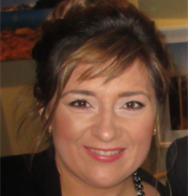
Wills Skills: Estate Planning for Blended Families
- 2 hrs
- 2 CPD Points
- 29/10/2025 - 29/10/2025
- Interactive
- Start from $198.00
- WN1007_WEP1
Wills Skills: Estate Planning for Blended Families
Date & time: 29 October 2025, 12pm - 2pm AEDT
Blended families, where one or both partners have children from a previous relationship, are common today, and their existence can make estate planning an especially tricky area. Skilful and effective estate planning ensures that all of the client's intended beneficiaries are provided for in the event of the client's death and the potential for conflict within the family is minimised.
Join our two-hour live online webinar on estate planning for blended families to:
- Gain an understanding of how to tackle client objectives
- Learn about possible strategies, estate planning advantages, and risks including:
- Outright gifts
- Mutual wills contract
- Discretionary trusts
- Non-estate assets; and
- Be informed about the risks of excluding children from prior relationships
Facilitated by:
- Katelin Whitley, Principal, Bestic Law, and Accredited Specialist, Wills and Estates
Feedback from past attendees:
- “Effective delivery in a meaningful way with helpful illustrations.”
- “The presenter communicated very well and were highly skilled in the area of presentation.”
At the end of this webinar, you may claim 2 CPD points.
Course Outline
12.00pm: Welcome and overview
12.05pm: Session 1
- Outright gifts
- Life estates
- Mutual wills
- Complex families and relationship changes
1.00pm: Stretch break
1.10pm Session 2
- Testamentary discretionary trusts
- Superannuation death benefits trusts
- Family trust
- Equalisation clause
- Marriage
- Foreign client/beneficiary
2.00pm: Close
The webinar is ideal for solicitors in general practice, lawyers and specialists in elder law, wills and estates, property law, medico law, estate planning specialists, probate lawyers and staff, family law practitioner and new solicitors (years 1-5 in practice).
This webinar is produced in NSW and features NSW based practitioners. This webinar is available to all NSW based practitioners.
If you intend to claim CPD units for this educational activity, please note that CPD activities are not accredited by the Law Society of NSW or any other equivalent local authority, with the exception of Western Australia. If you hold a practising certificate in a state or territory other than Western Australia and this educational activity extends your knowledge and skills in areas that are relevant to your practice needs or professional development, then you should claim one (1) "unit” for each hour of attendance, refreshment breaks not included. The annual requirement is ten (10) CPD units each year from 1 April to 31 March. Some practitioners, such as accredited specialists are required to complete more than ten (10) units each CPD year.
Practitioners holding WA practising certificates are not eligible to earn CPD points for this course.
All times listed for this course are Australian Eastern Daylight Savings Time (AEDT). Please take note of any time differences if you are registering from QLD, WA, SA, NT or from outside Australia.
The course complies with the mandatory requirements of 1 point in Substantive Law and 1 point in Professional Skills.

Katelin Whitley
Principal, Bestic Law, Accredited Specialist, Wills & Estates and Accredited Specialist in Property Law
Katelin Whitley is the Principal of Bestic Law located in Sydney and the Hunter Valley and practices primarily in succession and trust matters. She was admitted to practice in 2001 and was recognised by the NSW Law Society as an Accredited Wills and Estates Specialist in 2011.
She has considerable experience advising and acting on contested estate litigation including lack of testamentary capacity and undue influence cases, family provision claims, construction of will litigation, and application of the Forfeiture Act. Katelin has represented estates, applicants, and beneficiaries.
She works on both simple and high level estate planning and acts on estate administrations including for large and complex estates.
Katelin has been lecturing in the College of Law Wills & Estates Masters of Law Program since 2017. She has completed Masters of Law at the University of Sydney and Masters of Forensic Mental Health in the UNSW School of Psychiatry. She has also been a member of the Law Society of the NSW Elder Law and Succession Committee since 2012. She is a Notary Public and Accredited Specialist in Property Law since 2021.
Please be aware that video/audio recording may occur at professional development events organised by the College of Law for use on our website, marketing materials and publications. By attending and participating in a College of Law Continuing Professional Development course, you consent to the College of Law photographing or recording and using your image and likeness.
